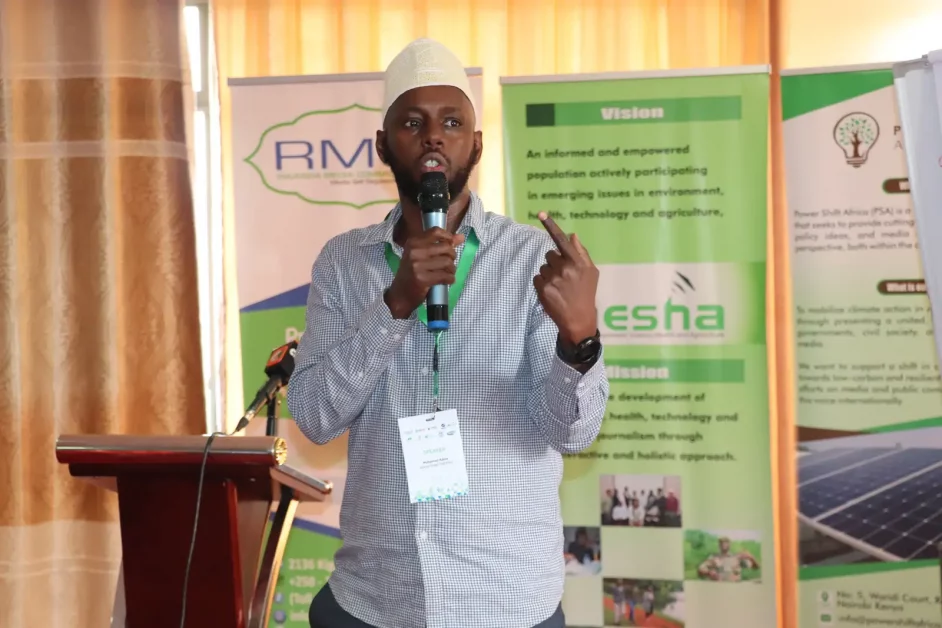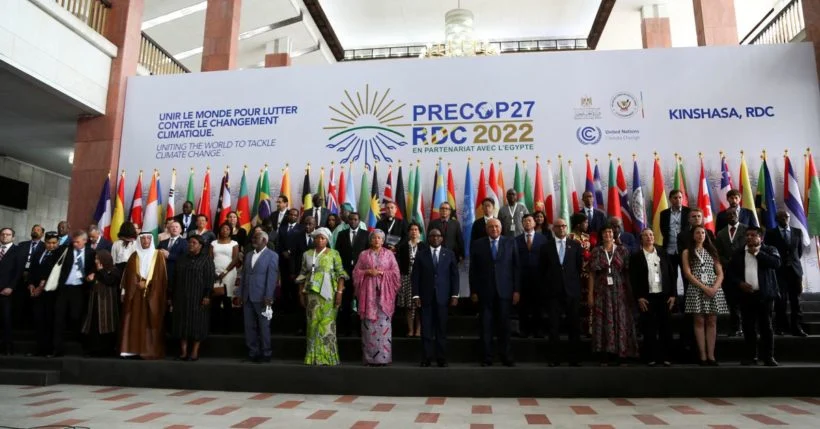D.Director, Rwanda Environmental Management Agency Faustine, calls on developed countries to reach Africa’s quest for funding Climate Sustainability needs.
While asking all African nations to fully participate at the COP27 climate summit in Egypt this November, Faustine called on the need for an Afrocentric approach to advance the continent’s quest for more funding.
Estimates show that climate funding to Africa, which contributes the least to climate hazards, stands at $30 billion per year despite a promise of $100 billion.

As a result of unkept promises of climate funds to a continent that contributes the least to climate change yet suffers the greatest devastation, climate activists in Africa are pushing for more, a tenfold increase in climate funding commitments to Africa from the west’s 2009 $100 billion figure to $1.3 trillion.
These calls were made during a recent pre-COP27 media conference in Kigali, Rwanda.
This year alone, climate change has caused one of the worst droughts in the Horn of Africa region, with at least 453 people dying as a result of flooding in South Africa in April, while hundreds perished due to devastating tropical storms in Madagascar and Mozambique in the same month.
On Aug. 3, at least 24 Ugandans lost their lives as flash floods hit the town of Mbale, leaving 5,600 people displaced and over 5,000 acres of crops destroyed.
2019 Save the Children report shows over 1,200 people died because of cyclones, floods, and landslides in Mozambique, Somalia, Kenya, Sudan, and Malawi.
“The $100 billion promise was just a number. It didn’t meet the climate needs of developing nations which are the most vulnerable. Africa has not been recompensed enough for loss and damage which it didn’t participate. “Munyazikwiye told participants.
California-based climate policy organization Climate Policy Initiative last month estimated that climate funding to Africa stands at only around $30 billion per year.
It also estimates that funding Africa’s mitigation needs would cost $1.6 trillion by 2030, together with an additional $580 billion for adaptation and $242 billion for dual benefit measures, which is double the $1.3 trillion the continent is asking for.
“Africa benefits from less than 5% of global climate financing despite suffering disproportionately from climate change.
There is an urgent need for developed nations to expand climate finance pledges, Philip Osano, Africa center director at Stockholm Environment Institute told Quartz.
The effects of climate change in Africa are atrocious
Africa produces less than 4% of the world’s carbon emissions but has witnessed some of the worst hazards of climate change, with temperatures rising faster than the global average.
A 2019 World Meteorological Organization report warned of a temperature rise of 4°C relative to pre-industrial levels, which could reduce Africa’s GDP by up to 12.12%.
The World Health Organization estimates that climate change will claim the lives of 250,000 more Africans per year between 2030 and 2050.
A 2021 report (pdf) by the Food and Agriculture Organization (FAO) indicates that the number of undernourished people in Africa has increased by 45.6% since 2012 due to climate change.
“Some 281.6 million people on the continent faced hunger in 2020, which is 46.3 million more than in 2019.” The report noted.
The carbon credit narrative is a sky trap for Africa
In the global carbon market, which grew by 164% to a record $851 billion last year, the continent ranks last in terms of green development mechanisms and funding.
“Africa has the largest room to trade its carbon credits but what are the obligations of the buyer and seller?” Munyazikwiye asked.
“Rich countries do not want to decarbonize their economies. It’s a sky trap. Instead of cutting emissions, they pay poor countries for running projects that reduce emissions and take credit for that. Africa doesn’t have emissions to cut, but emissions to avoid,” said the founder of climate think tank Power Shift Africa Mohamed Adow.
Adow called on all African presidents to consider leading climate dialogues in their countries because noting that if you’re the least developed and face the biggest climate vulnerabilities, you need to choose the right climate path.
Hitting out at African countries such as Namibia, Uganda, and DRC which want to follow the fossil fuel path, Mohamed warned that such moves inspire climate change perpetrators.
Subscribe to our You Tube channel at Switch TV.
Last February, Namibia discovered 11 billion barrels of oil, Uganda wants to mine its 6.5 billion barrels of oil while the DRC wants to exploit its 5 billion oil barrels, exposing more than 1 million people to pollution and diseases.
















